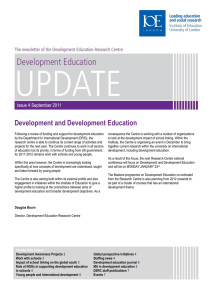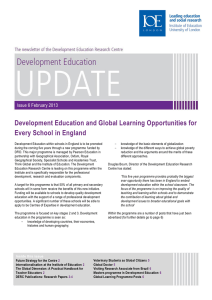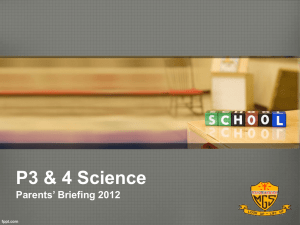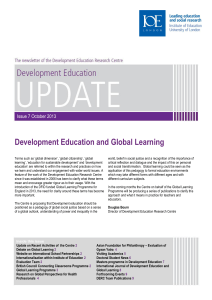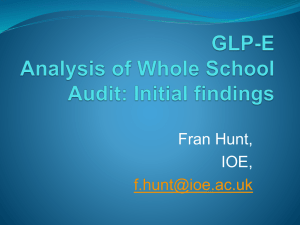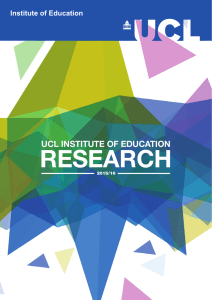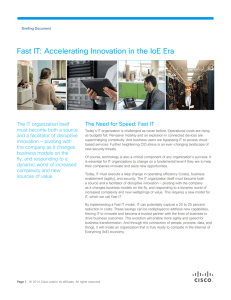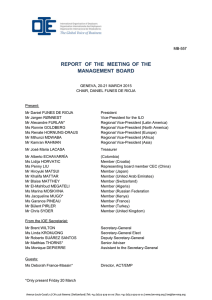Pedagogy of Global Learning Dr. Douglas Bourn, Director –Development Education Research Centre
advertisement
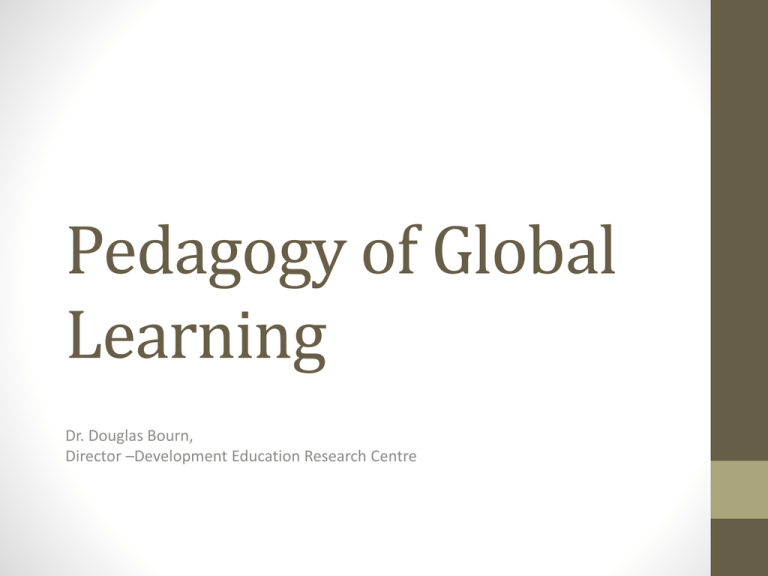
Pedagogy of Global Learning Dr. Douglas Bourn, Director –Development Education Research Centre Current Situation in Europe regarding Global Learning • Changes in how national governments and public perceive development and aid • European Commission committed to Development Education but more strategic • This reflected in many national initiatives • NGOs in many countries less committed to development education • But young people and civil society organisations requesting knowledge about and desire to engage in a global society Global Learning Programmes • Central role of learning within development and global education practice • Importance of deepening knowledge and understanding • Move towards more strategic initiatives • Implies going beyond the usual suspects • Importance of Research and Evidence • Building Capacity and Expertise Themes That Have Emerged • Different national education priorities • Identifying best mechanisms to support schools and teachers • Continued important role of NGOs and other support providers • Motivation- taking this forward • Importance of evidence- classroom practice • Good resources Process of Learning • Global Learning too often been focused on adding themes to the school life and not on re-thinking what is already there • Need to consider as much about how we learn as what we learn Pedagogy of Global Learning Moving from Charity Mentality to Social Justice • Global Outlook • Recognition of Power and Inequality • Belief in Social Justice • Commitment to Critical Thinking,Reflection, Dialogue and Transformation Engagement and Intervention • Recognising and understanding starting points of teachers and pupils • Process of learning that unlikely to be linear or straightforward • Outcomes of process likely to be ‘messy’ and ‘complicated’ Dangers and Threats • Seeing global learning as just another initiative to add on to already burden curriculum • Reducing it to series of activities, a ‘global learning day’ • Agenda seen as too difficult and too time consuming Opportunities and Hopes • Builds on inspiration, emotion and concern for a better world • Provides the space to do that you have always wanted to do but not always had the time or recognition that it was valuable and important • Evidence that it motivates some pupils that may well not be motivated but other areas of learning • Equips the learner for the needs of the 21st century and the future What Next • Encourage colleagues, partner schools, civil society organisations to value global learning • Promote and share what you have learnt • Create spaces for further professional development and learning eg. Masters course www.ioe.ac.uk/derc d.bourn@ioe.ac.uk
